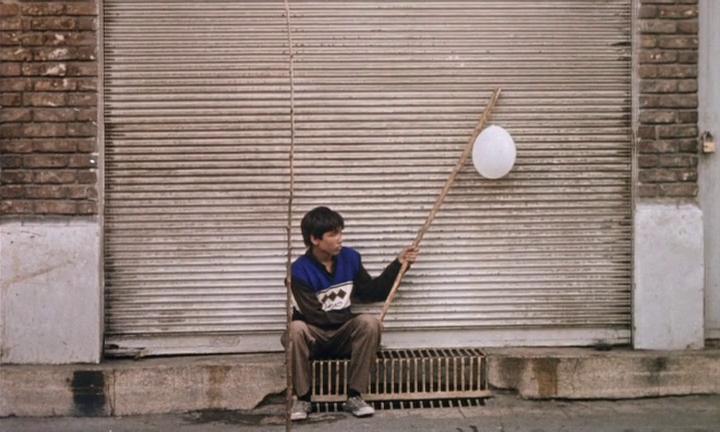Despite the political and artistic restrictions, Iranian films have consistently garnered recognition at prestigious international film festivals, including Cannes and the Oscars. This acclaim highlights the paradox of a nation often associated with conflict and sanctions, yet home to some of the most compelling cinematic works in history. The ability of Iranian filmmakers to convey complex narratives through minimalist storytelling has captivated audiences worldwide, revealing a culture rich in history and artistic innovation
Iranian cinema has evolved into an engaging, chaotic, soulful, and poignant reflection of its society. It stands as a testament to the resilience and industrious spirit of the Iranian people, providing a powerful and authentic voice for the country’s rich and compelling stories. Through its films, Iran continues to communicate its diverse experiences and perspectives to the world.
Also Watch :- These are 8 Top Horror Hits on Amazon to watch in 2023-2024
1. A Separation (2011)
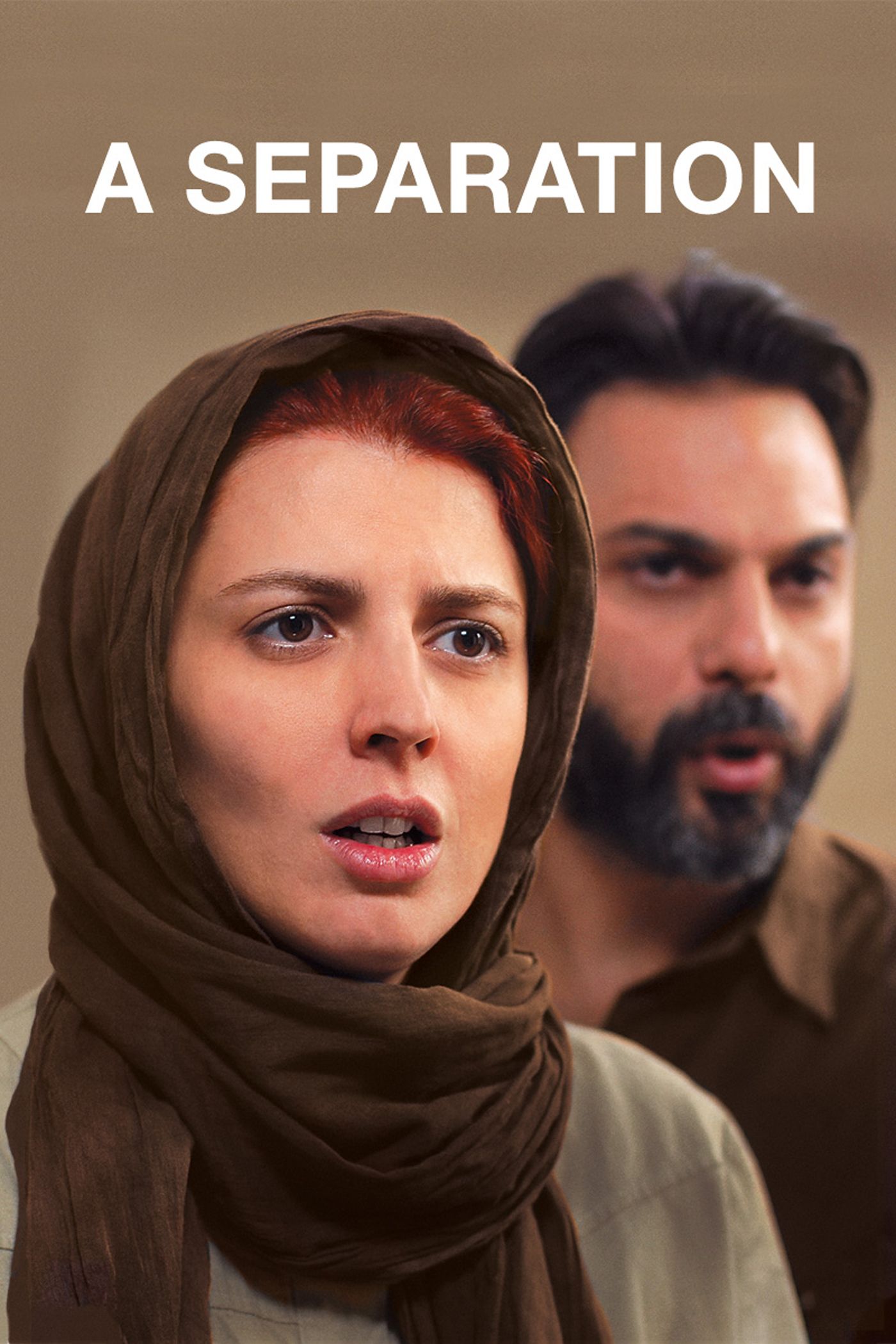
Directed by Asghar Farhadi, “A Separation” is a gripping drama that delves into the complexities of marriage, family, and justice. The story revolves around a couple facing a difficult decision about whether to leave Iran for better opportunities or stay to care for an aging parent. The film’s intricate plot and stellar performances earned it the Academy Award for Best Foreign Language Film.
The film explores the emotional and moral challenges they face, showing how personal and societal pressures impact their choices. When an incident with their hired caregiver leads to a legal dispute, it reveals deeper issues within their family and society.
“A Separation” is known for its deep and realistic storytelling, with strong performances from the actors. It won the Academy Award for Best Foreign Language Film, making it a significant and highly acclaimed piece of Iranian cinema.
2. Children of Heaven (1997)
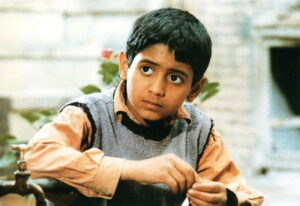
“Children of Heaven” (1997) is a touching and beautiful film directed by Majid Majidi. It tells the story of a young brother, Ali, and his sister, Zahra, who come from a poor family in Iran. The plot begins with Ali accidentally losing Zahra’s only pair of shoes. Knowing their family can’t afford to buy a new pair, the siblings come up with a plan to share Ali’s sneakers. Zahra will wear them to school in the morning, and Ali will use them in the afternoon.
The movie shines because of its simple yet powerful storytelling. It shows the innocence, love, and resilience of children who face everyday challenges with creativity and determination. Despite their hardships, Ali and Zahra support each other and find joy in the little things.
“Children of Heaven” beautifully captures the essence of childhood, where even a pair of shoes can lead to a great adventure. The film’s universal themes of family, kindness, and perseverance resonate with audiences around the world. This heartfelt story earned international acclaim and became the first Iranian film to be nominated for an Academy Award, highlighting its global appeal and the talent of its director, Majid Majidi.
3. The Salesman (2016)

“The Salesman” (2016), directed by Asghar Farhadi, is a gripping and emotional film about the aftermath of an assault on a woman named Rana and how it affects her marriage to Emad. The story is set in Tehran and parallels their lives with a production of Arthur Miller’s play “Death of a Salesman,” which Emad is starring in.
Farhadi’s storytelling is nuanced and powerful, showing how a single event can ripple through the lives of those affected. “The Salesman” won international acclaim, including the Academy Award for Best Foreign Language Film, highlighting Farhadi’s talent for crafting deeply human and relatable stories.
4. Persepolis (2007)
“Persepolis” (2007), directed by Marjane Satrapi and Vincent Paronnaud, is a captivating animated film based on Satrapi’s own graphic novel. The story follows Marjane, a spirited and outspoken young girl, as she grows up in Iran during and after the Islamic Revolution.
The film uses a unique black-and-white animation style that brings Satrapi’s illustrations to life. This distinctive look helps convey the emotional depth and historical context of the story. Through Marjane’s eyes, we see the drastic changes in Iranian society, from the fall of the Shah to the rise of the Islamic regime, and the impact these events have on her family and friends.
“Persepolis” is not just a political story but also a deeply personal one. It captures Marjane’s struggles with identity, freedom, and the challenges of growing up. Despite the serious subject matter, the film is filled with humor and warmth, making Marjane’s journey relatable and engaging.
As Marjane moves to Europe for safety and education, she faces new challenges, including cultural differences and feelings of alienation. The film beautifully portrays her resilience and determination to stay true to herself.
“Persepolis” received widespread acclaim for its honest and heartfelt storytelling. It provides a unique and insightful look into the life of a young girl caught between two worlds, making it a powerful and memorable film.
5. Taste of Cherry (1997)
“Taste of Cherry” (1997), directed by Abbas Kiarostami, is a thought-provoking and deeply meditative film. The story follows a man named Mr. Badii as he drives around the outskirts of Tehran looking for someone to help him with a very unusual and somber request: he wants to find someone who will bury him after he commits suicide.
The film has a minimalist style, with much of the story taking place inside Mr. Badii’s car as he talks to various people he meets along the way. These conversations are filled with philosophical questions about the value of life, the nature of happiness, and the reasons for living or dying.
Kiarostami’s use of simple, natural settings and straightforward dialogue makes the film feel very real and intimate. Instead of dramatic scenes, the movie focuses on the quiet moments and deep reflections of its characters. This approach encourages viewers to think about their own lives and the choices they make.
“Taste of Cherry” is not just about one man’s decision to end his life; it’s about the conversations and connections he makes in the process. Each person he meets offers a different perspective, showing the complexity and diversity of human experiences and thoughts.
The film won the prestigious Palme d’Or at the Cannes Film Festival, highlighting its powerful impact and the universal nature of its themes. “Taste of Cherry” is a film that stays with you, prompting deep contemplation long after it ends.
6. The Wind Will Carry Us (1999)

“The Wind Will Carry Us” (1999), directed by Abbas Kiarostami, is a reflective and beautifully crafted film. The story centers on a group of journalists who travel to a remote village in Iran to document a local ritual. However, when they arrive, they find that the ritual is linked to the imminent death of an elderly woman who is not yet ready to pass away.
The film unfolds at a slow, deliberate pace, allowing viewers to immerse themselves in the serene and picturesque village life. Kiarostami uses this setting to explore deep themes such as life, death, and the passage of time. The interactions between the journalists and the villagers are filled with moments of quiet reflection, humor, and subtle insights.
One of the film’s strengths is its focus on the beauty of everyday moments. Kiarostami’s camera lingers on simple scenes: a child fetching water, the wind blowing through the fields, or villagers going about their daily routines. These moments encourage viewers to appreciate the small, often overlooked aspects of life.
The main character, Behzad, becomes increasingly introspective as he waits for the ritual to unfold. Through his experiences and observations, the film delves into existential questions and the meaning of life. The title, “The Wind Will Carry Us,” comes from a poem by Forough Farrokhzad, which adds a poetic layer to the film’s contemplative nature.
“The Wind Will Carry Us” invites viewers to slow down and reflect on their own lives. It’s a film that finds profound beauty in simplicity and encourages a deeper appreciation for the world around us.
7. Close-Up (1990)

“Close-Up” (1990), directed by Abbas Kiarostami, is a fascinating film that blurs the lines between documentary and fiction. It is based on the true story of a man named Hossain Sabzian, who impersonates the famous Iranian filmmaker Mohsen Makhmalbaf and deceives a family into believing that they will star in his next movie.
The film begins with Sabzian being arrested for his deception. Kiarostami then reconstructs the events leading up to the arrest using a mix of real footage and reenactments performed by the actual people involved, including Sabzian and the family he conned. This innovative narrative structure creates a unique and compelling viewing experience.
“Close-Up” delves deep into themes of identity, deception, and the nature of art and reality. Sabzian’s impersonation is not driven by malicious intent but rather by his admiration for Makhmalbaf and his desire to be part of the world of filmmaking. Through his actions, the film explores the human need for recognition and the blurred boundaries between one’s aspirations and reality.
The interactions between Sabzian and the family are portrayed with sensitivity and empathy. Kiarostami does not judge Sabzian harshly but instead presents his story in a way that allows viewers to understand his motivations and struggles. This compassionate approach makes “Close-Up” a deeply human and thought-provoking film.
8. About Elly (2009)
Directed by Asghar Farhadi, movie starts with a seemingly joyful beach vacation but soon turns into a suspenseful and tense situation. The story follows a group of friends who travel to the Caspian Sea for a weekend getaway. Among them is Elly, a young teacher invited by one of the friends, Sepideh, in hopes of introducing her to Ahmad, a recently divorced man.
The group’s fun and carefree holiday quickly takes a dark turn when Elly mysteriously disappears. What begins as a relaxing trip transforms into a frantic search, filled with worry and confusion. The friends are forced to confront a series of hidden truths and deceptions, leading to mounting tension and conflict among them.
The film’s strength lies in its intense, character-driven narrative. Farhadi’s direction ensures that each character is well-developed, and their interactions feel genuine and deeply human. The suspense builds steadily, keeping the audience engaged and invested in the fate of Elly and the group.The film’s realistic portrayal of a seemingly ordinary situation turned extraordinary captivates viewers and leaves a lasting impression.
Overall, “About Elly” is a must-watch for its compelling storytelling and the way it highlights the fragile nature of truth and trust in human relationships. It stands out as a testament to Farhadi’s skill in crafting intense and memorable dramas.
9. The White Balloon (1995)
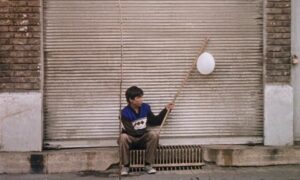
The story begins on the eve of the Iranian New Year, a time of celebration and renewal. Razieh is fascinated by a plump goldfish she sees in a shop and becomes set on buying it to replace the skinny ones she has at home. With the help of her older brother, she persuades her mother to give her the money.
With a 500-toman note in hand, Razieh sets off through Tehran’s busy streets. Along the way, she encounters various challenges and colorful characters—a snake charmer, a friendly shopkeeper—all adding to her adventure. The film brilliantly captures everything from her point of view, immersing us in her small but determined world.
Through these encounters, the warmth and festive spirit of the New Year come alive. The story beautifully reflects both Iranian culture and the universal themes of perseverance and childhood wonder. “The White Balloon” is a touching portrayal of life’s small but meaningful journeys.
In the end, Razieh’s simple quest becomes a touching story of perseverance and the small but significant triumphs of childhood. “The White Balloon” is a testament to Jafar Panahi’s talent for storytelling and his ability to create a compelling narrative from everyday life.
10. Offside (2006)
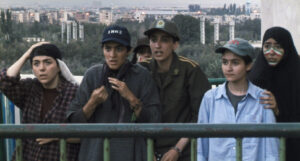
Offside” (2006) by Jafar Panahi is a touching yet funny film about gender discrimination in Iran. It tells the story of young girls who love soccer but can’t watch men’s matches because of the law. Determined, they disguise themselves as boys to enter the stadium, but get caught and held by guards.
The film shows their lively conversations and clever attempts to outsmart the guards. Despite the humor, it highlights the unfairness of the rules they face. More than just a soccer story, “Offside” is about women’s struggle for equality and their courage to challenge injustice
Also watch Story :– This Is How ‘Deadpool & Wolverine’ About to Shatter an 11-Year-Old MCU Box Office Record

